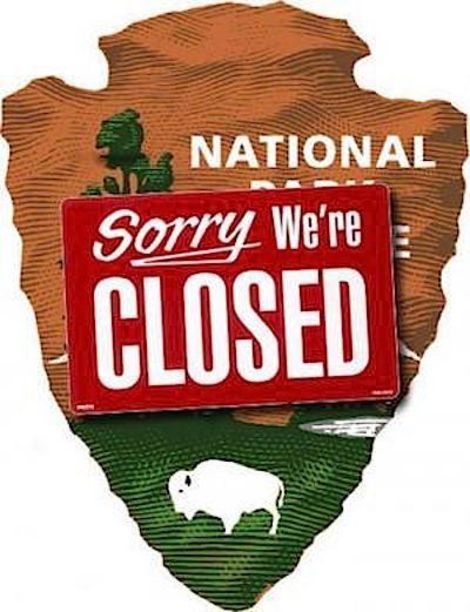There are a lot reasons to be wary about yesterday’s election outcome regardless of your political affiliation. But one that’s important to us over here at O&E is the question of public lands, and our access to them.
I’m a firm believer in Ken Burns’ contention that the National Parks, and the wider system of federal lands that it spawned, was America’s “best idea”. The radical notion that land should be set aside simply for the sake of the land itself opened a new relationship between humans and the wilderness - one based on the idea that the two parts were equals, that wild nature was not simply to be exploited for material gain.
Riding the wave of Republican progressivism led by Republican Teddy Roosevelt, America became a beacon for conservation in the early twentieth century. The concept eventually spread around the world - preserving landscapes and wildlife from Africa, to Australia, to South America, and even to China.
However, in this year, the centennial of the National Park Service, nearly all of our federal lands administration is withering under the unwillingness of Congress to fund the agencies that support it. For example, there is backlog of deferred maintenance and critical projects that runs into the tens of billions of dollars for the NPS alone. This is death by attrition and neglect.
Why is this important?
I will go ahead and assert that all of us who love to explore the American wilderness, no matter our methods, rely on the world’s best and most comprehensive network of public lands for that access. Period.
Public lands are one of the great American patrimonies, and I fear they will be under even greater threat - an active threat, not just a passive one - in a Trump administration. This is particularly true in the American west.
Exhibit A is the Republican National Committee election platform for 2016. This is the guiding legislative and ideological doctrine for the now dominant Party, and it is pretty darn explicit when it comes to the vision for federal lands:
The federal government owns or controls over 640 million acres of land in the United States, most of which is in the West. These are public lands, and the public should have access to them for appropriate activities like hunting, fishing, and recreational shooting. Federal ownership or management of land also places an economic burden on counties and local communities in terms of lost revenue to pay for things such as schools, police, and emergency services. It is absurd to think that all that acreage must remain under the absentee ownership or management of official Washington. Congress shall immediately pass universal legislation providing for a timely and orderly mechanism requiring the federal government to convey certain federally controlled public lands to states. We call upon all national and state leaders and representatives to exert their utmost power and influence to urge the transfer of those lands, identified in the review process, to all willing states for the benefit of the states and the nation as a whole. The residents of state and local communities know best how to protect the land where they work and live. They practice boots-on-the-ground conservation in their states every day. We support amending the Antiquities Act of 1906 to establish Congress’ right to approve the designation of national monuments and to further require the approval of the state where a national monument is designated or a national park is proposed.
There’s a whole lot to unpack in that horrorscape of a run-on sentence, but for the sake of at least a little bit of brevity, let’s focus on just one point.
Congress shall immediately pass universal legislation providing for a timely and orderly mechanism requiring the federal government to convey certain federally controlled public lands to states.
This vaguely worded clause is a euphemism for open season on public lands.
Let’s be completely clear - “the states” do not have the resources to effectively manage the “640 million acres” of federal public land as they are. Booted from federal management, they will be sold, subdivided, opened for resource extraction, and generally shuttered.
A number of transfer-minded Republican state legislatures, governors, Congressional delegations, and special interests have been pushing hard for this, from Utah to Montana.
Montana barely dodged a bullet when we managed, against a lot of odds, to re-elect a public lands advocate to our Governor’s office, instead of a Republican candidate who sued the state to close constitutionally guaranteed stream access on his property.
What does all this mean in a Trump administration?
It’s incredibly difficult to say, because Trump is all over the map on basically every issue you can name, and his relationship to the Republican Party as a whole is certainly tenuous. He’s not bound by the RNC platform, and his own official policy publications (if you can call them that) are basically silent on the land access and transfer question.
His record on public lands on the campaign trail is equally hard to decipher, and in some instances fairly hopeful. But this maddening inconsistency is hard to put any kind of faith in, and he may be willing to barter public land transfer tokens for other kinds of political capital among conservative Western politicians. In any case, a Republican Congress will certainly push the issue, likely under the national radar and buried in larger bills, because in the grand scheme of things it’s not really a major issue in the American consciousness.
But it should be.
We should be deeply concerned about the future of our public lands, and the access that we all take for granted.
